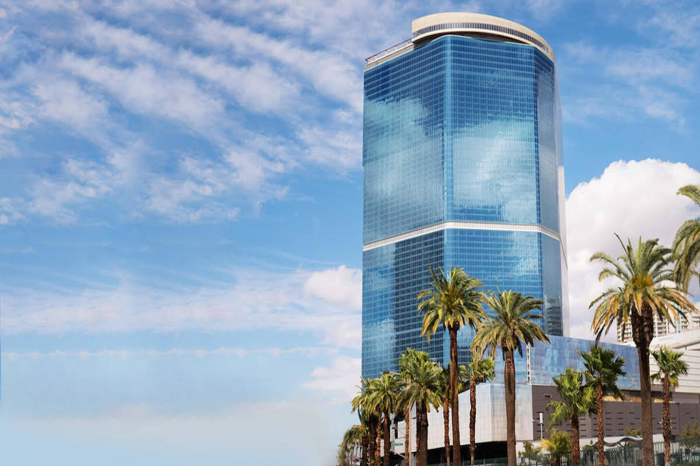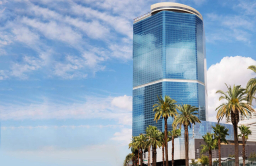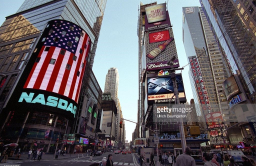-
KOSPI 2577.27 -2.21 -0.09%
-
KOSDAQ 722.52 -7.07 -0.97%
-
KOSPI200 341.49 +0.02 +0.01%
-
USD/KRW 1396 -2.00 0.14%
Tourism, aircraft take bulk of 2020 alternatives loss
Alternative investments
Tourism, aircraft take bulk of 2020 alternatives loss
Korean brokerage firms' increased exposure to global alternatives is unlikely to affect their near-term credit ratings
By
Aug 05, 2021 (Gmt+09:00)
3
Min read
News+

South Korea's eight leading brokerage companies, including Mirae Asset Securities Co. and Hana Financial Investment Co., are estimated to have booked a combined 840 billion won ($735 million) as losses from overseas alternative investments in 2020, according to a rating agency on Thursday.
Hotels and tourism-related assets took the bulk of the losses at about 500 billion won, with the shortfalls in relation to aircraft investments estimated at 90 billion won, Korea Investors Service (KIS) said in a report. KIS is part of Moody's Investors Service.
Aside from the booked losses, the eight brokerage firms, each with more than 4 trillion won in capital, are exposed to an additional 3.3 trillion won worth of potential losses from overseas alternatives as of the end of last year.
But their increased exposure to overseas alternatives would not mean any immediate rating action by the agency. With ample market liquidity driving the value of their investments higher, their prices will likely rise further as the pandemic is receding, KIS said.
Moreover, the volume of their overseas alternatives remains small relative to their total investments. Their financial structure is solid enough to cover additional shortfalls from the global investments as well, KIS added.
The value of overseas alternatives at the eight brokerage firms has surged almost sixfold over the past three years, standing at 19 trillion won as of the end of 2020, versus 3.3 trillion won at the end of 2017.
The end-2020 figure is equivalent to 43.5% of their combined equity capital of 43.7 trillion won.
Of the 19 trillion won, real estate makes up 11 trillion won, of which the US accounts for half. By asset type, office buildings and hotels represent 70% of the real estate portfolio, or 7.8 trillion won in value.
Equities and subordinated debts take up 73% of the overseas real estate investments, meaning their high vulnerability to asset price fluctuations. For logistics and office buildings, equity and subordinated tranches are more than 80%.
By company, Hana Financial Investment, Meritz Securities Co. and Shinhan Investment Corp. reported higher exposure to overseas alternatives than the average of 43.5%. In particular, Hana's overseas alternatives reached 103% of its shareholder capital, compared with 70% for Meritz.
Mirae Asset's exposure to overseas hotels is worth 1.3 trillion won. Last December, it won a lawsuit against the Chinese insurer in relation to the $580 million deposit it had paid to Anbang Insurance Group for a $5.8 billion deal to buy 15 luxury hotels in the US.
As of the end of last year, the value of overseas alternatives which have not yet been sold down for more than a year came to 7.8 trillion won at the eight brokerage companies.
Looking ahead, the rating agency said it will keep a close eye on aircraft, hotels and coal investments which it classifies as high-risk segments, while categorizing office buildings and commercial or retail facilities as medium-risk assets.
| Company Name | Investment asset | Amount of Investment Loss as of end-2020 |
| Hana Financial Investment | US hotel | 30 billion won |
| Mirae Asset Securities | US hotel | 260 billion won |
| Midstream asset and power plant | 60 billion won | |
| Meritz Securities | Aircraft | 70 billion won |
| Residential property in India and Australia | 40 billion won | |
| Shinhan Investment | US hotel | 76 billion won |
| Hong Kong office | 20 billion won | |
| Korea Investment & Securities | Hong Kong office | 8 billion won |
| Aircraft | 10 billion won | |
| NH Investment & Securities | US hotel | 70 billion won |
| KB Securities | US office and hotel | 60 billion won |
| Samsung Securities | Office buildings in Japan and Denmark | 6 billion won |
| Source: Korea Investors Service | ||
Write to Eun-jung Kim at kej@hankyung.com
Yeonhee Kim edited this article.
More To Read
-
 Alternative investmentsBrokerage firms see losses on $7 bn overseas alternatives
Alternative investmentsBrokerage firms see losses on $7 bn overseas alternativesJan 04, 2021 (Gmt+09:00)
-
 Mezzanine loansMirae, NH face lawsuit over Drew Las Vegas loan loss
Mezzanine loansMirae, NH face lawsuit over Drew Las Vegas loan lossJun 01, 2021 (Gmt+09:00)
-
Oct 06, 2020 (Gmt+09:00)



